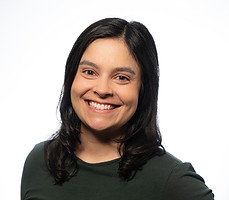Julie Paul (she/her/hers),MScPT Physiotherapist

Please Email Julie at juliepaulphysio@gmail.com
to arrange a complimentary 15 minute phone call where you can learn about functional neurology physiotherapy and if it’s right for you
Availability
Monday 2pm - 8pm
Tuesday. 2pm - 8pm
Thursday 9am - 2pm
Friday 2pm - 8pm
Julie is passionate about empowering patients to move their bodies efficiently in order to return to the activities they enjoy.
Julie understands the love for human movement (and the highs and lows of recovering from injury), and enjoys participating in different activities such as running, parkour, martial arts, windsurfing, kayaking, skiing, cycling, swimming, hiking and backpacking.
If you are wanting to understand the origin of your injuries, and be an ACTIVE participant in your treatment planning and physiotherapy rehab, then working with Julie could be a good fit for you.
Julie will get creative with you to tailor your physiotherapy treatment plan and exercises to your goals and specific activities, whether it be gardening, sports, or workplace tasks.
CLINICAL TECHNIQUE: FUNCTIONAL NEUROLOGY
Julie’s main practice tool is using functional neurology, including a technique called Proprioceptive Deep Tendon Reflex (P-DTR).
In the simplest way, functional neurology works on helping to "reset" the "muscle reflexes" that turn on to protect you after an injury.
Once the muscle reflexes can be normalized, and the brain understands that the injury is no longer happening, our muscles and tissues can RELAX, resulting in less tightness, joint compression, and pain.
It then becomes easier to prescribe exercises and stretches to help work towards your movement and activity goals.
Julie has received her Advanced Level Certification in P-DTR.
If this physiotherapy approach sounds like something you want to try, please email Julie directly at juliepaulphysio@gmail.com to arrange a 15-min phone consult.
During this call, she can discuss the modality with you, decide if it's a good fit for your needs, and schedule an initial assessment.
SCHEDULE:
Julie is at Tonume 4 days/week:
- Mon/Tues/Fri 2pm-8pm
- Thurs 9am-2pm
Contact Julie directly at juliepaulphysio@gmail.com for more information.
Julie has received certifications and attended a variety of courses including but not limited to:
– Craniosacral Level 1 (2020): helping to downregulate the nervous system with gentle contact on the head, spine and sacrum to help areas release tension and allow joints to move easier;
– Complete Concussion Management Certification (2025): evidence-based course on multisystem, comprehensive, concussion assessment and management;
– Concussion Management Workshop (2016): including vision, balance, and vestibular rehabilitation, as well as post-concussion treatment and manual therapy techniques for the cervical spine (bones of the neck);
– Barefoot Training Summit conference including components of (2016): Animal Flow (variety of core strengthening and bodyweight movements), proprioceptive (body awareness) training, primal movement (reflex-based, developmental movement patterns) and fascial tensioning (to assist with balance, alignment, and foot/ankle stability);
– Primal Movement Chains Workshop (2016): working along fascial chains, rotational muscle patterns and effective force generation to improve stability, performance, and reduce injury;
– Neurokinetic Therapy (NKT) Level 1, 2 & 3 course and certification: finding muscle compensation patterns and improving motor control and body awareness;
– Primitive, Dynamic, and Postural Reflex Integration course through the Svetlana Masgutova Educational Institute (MNRI) (2015): manual techniques to assist with regulating the sensory system and integrating automatic reflexes to promote development and treat sensory concerns (http://masgutovamethod.com/about-the-method)

